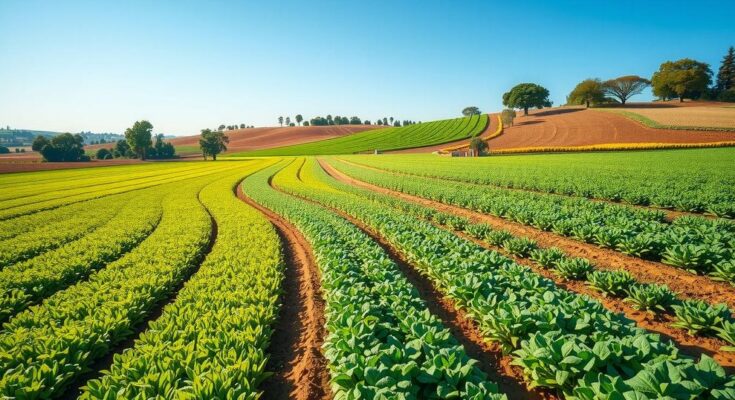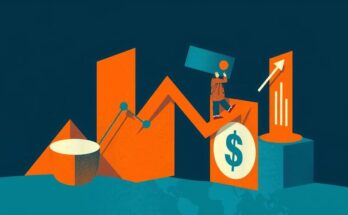Brazil plans to purchase 445,000 metric tons of rice, corn, and beans to enhance food stocks amid rising inflation, marking a policy shift from previous administrations. The government has also reduced import tariffs on food items, though concerns about effectiveness persist. President Lula da Silva’s popularity is declining as food prices rise significantly.
The Brazilian government has announced plans to purchase at least 445,000 metric tons of essential food items, including rice, corn, and beans, to enhance food reserves as inflation continues to be a significant concern. This strategy represents a notable shift in policy from previous administrations, suggesting an increasing struggle to manage inflation effectively.
In an effort to control surging food prices, Brazil recently reduced import tariffs on several food items. However, analysts have expressed skepticism about the efficacy of this measure. Consequently, the popularity of President Luiz Inacio Lula da Silva has declined as public concern over rising consumer prices grows.
As part of its initiative, the government’s food crop agency, Conab, will receive an additional budget of 350 million reais (approximately $60.35 million) for grain purchases. Although this initiative is intended to stabilize food prices, Conab has yet to comment on the specifics regarding the planned volumes of grain.
According to IBGE, the prices of food and beverages saw an increase of around 8% in 2024, with January alone experiencing a rise of nearly 1%, marking five consecutive months of price increases. The February data is anticipated to be released on Wednesday.
The Brazilian government is undertaking significant measures to combat persistent inflation by bolstering food stocks and adjusting import tariffs. The planned acquisition of food stocks reflects a departure from previous strategies, driven by rising consumer concerns and declining governmental popularity. The effectiveness of these measures remains to be seen, particularly as inflation continues to challenge the country’s economic stability.
Original Source: www.tradingview.com




